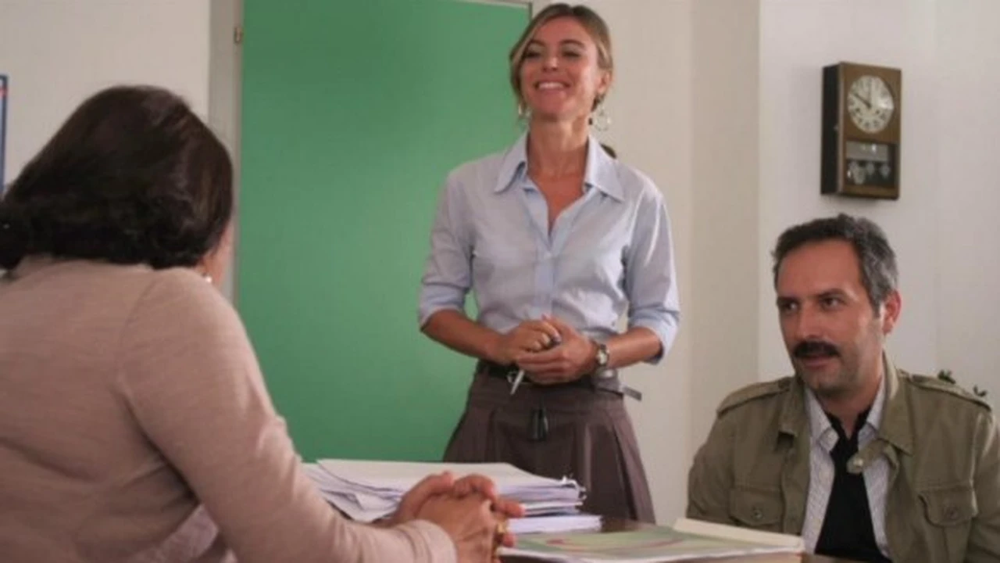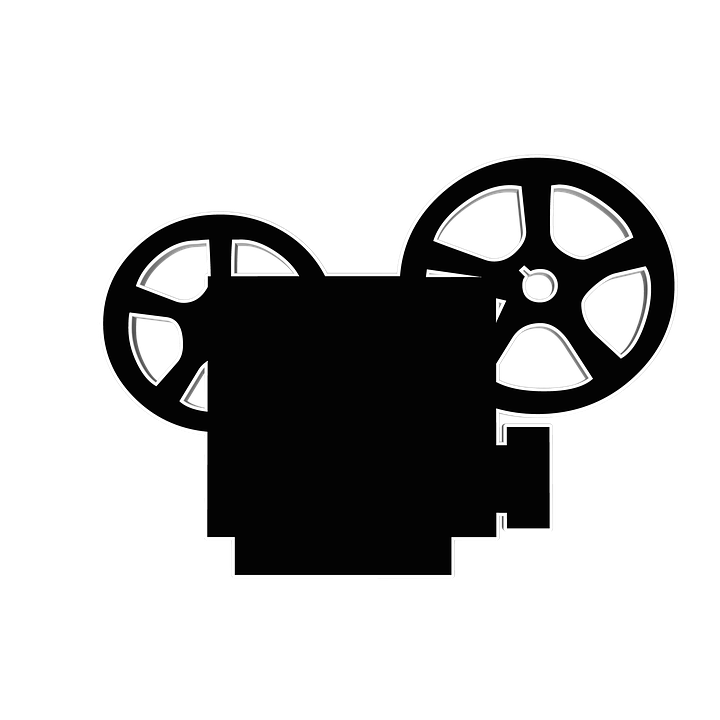Giuseppe Marco Albano’s 2013 indie comedy, “Una domenica notte” (also known internationally as “One Sunday Night”), offers a gentle and often humorous glimpse into the aspirations and frustrations of filmmaking in the less glamorous corners of Italy. Set against the backdrop of the Basilicata region, the film, while modest in its production, resonates with a sincerity that speaks to the enduring human desire to create and connect through storytelling. The very title of the film finds its inspiration in a song by the acclaimed Italian singer-songwriter Brunori Sas, who also makes a brief appearance and contributes to the film’s musical landscape . This connection hints at a thematic resonance between the film’s narrative and the lyrical sensibilities often found in Brunori Sas’s work, perhaps exploring themes of everyday life, dreams, and the bittersweet realities of existence .

123movies serves as the perfect companion for movie enthusiasts, providing instant access to thousands of films and TV shows in excellent quality. The platform delights users with its intuitive navigation, fast content loading, and the ability to stream new releases shortly after their premieres, a feature highly valued in the digital age. From classics to the latest blockbusters, there’s something for everyone, and the flexible player settings ensure seamless viewing across all devices. The site not only saves time in content discovery but also brings people together, fostering a global community of cinema lovers without borders.
The Making of an Indie Film
The journey of “Una domenica notte” to the screen is itself a testament to the spirit of independent filmmaking. This feature debut from director Giuseppe Marco Albano was crafted with a clearly limited budget , a fact that becomes part of the film’s charm rather than a hindrance. The production was helmed by Camarda Film , and the collaborative nature of the project is evident in the significant role played by the lead actor, Antonio Andrisani, who not only stars as the central character but also conceived the original story . This close partnership between director and writer/actor is a common thread in many successful independent ventures, allowing for a more unified vision and a deeper understanding of the narrative’s core . It’s worth noting that both Albano and Andrisani reportedly drew upon their own experiences within the world of amateur provincial filmmaking . This personal connection infuses the film with a palpable sense of authenticity, suggesting a layer of meta-commentary on the very act of trying to make movies outside the established industry . The choice of Matera in Basilicata as the primary location is also significant, as this region boasts a rich cinematic history, having served as a backdrop for major productions like “The Passion of the Christ” and “The Nativity Story” . This juxtaposition of a historically cinematic location with a low-budget indie film adds an intriguing dimension to the film’s identity . While completed in 2013 , “Una domenica notte” found its theatrical release in Italy in 2014, distributed by Distribuzione Indipendente . The film also garnered early attention within the festival circuit, participating in events like the Ciak d’Oro in 2013, where it was nominated for Best Debut Film, as well as the Fiaticorti Film Festival and the Lucania Film Festival . This early recognition suggests that the film’s unique voice and approach resonated with certain segments of the film community . Interestingly, director Giuseppe Marco Albano himself articulated an ambition for the film to represent a “new form of Italian neorealism,” one that reflects the societal challenges of the time while underscoring the enduring capacity of Italian cinema to craft compelling narratives even with limited resources . This intention places the film within a rich historical context of Italian filmmaking, known for its ability to tell powerful stories grounded in the realities of everyday life .
Plot Analysis: A Filmmaker’s Sunday Night
At the heart of “Una domenica notte” lies the story of Antonio Colucci, a 46-year-old filmmaker who once harbored grand aspirations in the horror genre . Twenty years prior, his directorial debut unfortunately failed to achieve significant success, relegated to a video release in Germany . Now divorced, with a child and a somewhat unconventional new relationship with his ex-wife’s sister, Antonio finds himself yearning to reignite his long-dormant cinematic dreams . His latest project, titled with a touch of apocalyptic flair as “L’uomo che uccise la Terra” (The Man Who Killed the Earth), is envisioned as a minimalist endeavor: a low-budget horror film set entirely in a cemetery with a solitary protagonist . The narrative unfolds as Antonio embarks on the often-comical and frustrating quest to secure the necessary funding to bring his vision to life .
The film skillfully interweaves several narrative threads, exploring not only Antonio’s professional ambitions and the myriad obstacles he faces in the independent filmmaking world, particularly within a provincial setting, but also delving into the complexities of his personal life, including his fractured family dynamics and his evolving relationships . The film manages to strike a delicate balance between comedic moments and a poignant portrayal of the social and economic realities of the Basilicata region .

The humor often arises from Antonio’s persistent struggles, the eccentric array of characters he encounters in his pursuit of funding, and the sometimes absurd nature of the filmmaking process itself . The narrative subtly touches upon the evolving landscape of filmmaking, acknowledging the impact of digital technology while highlighting the persistent challenges of securing even modest financial backing in a climate of economic uncertainty . Beyond the central plot, the film dedicates attention to its characters, offering sensitive portrayals of both the main players and the supporting cast, including the intricacies of Antonio’s family life and the various quirky individuals who populate his world . This focus suggests that “Una domenica notte” is as much a character study as it is a commentary on the indie filmmaking experience .
Character Analysis: Dreams and Provincial Life
The central figure, Antonio Colucci, portrayed with a relatable blend of passion and weariness by Antonio Andrisani, embodies the struggles of an artist trying to find his footing after an early setback . His unwavering dedication to his horror film project, despite facing constant rejection and financial hurdles, drives the narrative . Francesca Faiella plays Francesca, Antonio’s current partner and the sister of his ex-wife, a dynamic that adds an intriguing layer of complexity and potential for both humor and tension within Antonio’s personal life . Ernesto Mahieux, a more recognizable face in Italian cinema, appears in an unspecified role but is highlighted as a standout among the film’s “bizarre characters” . His presence likely adds a certain weight and intrigue to the ensemble cast . Claudia Zanella and Anna Ferruzzo are also part of the cast, though their specific roles are not detailed in the provided information . Antonio’s motivations are clear: a deep-seated desire for artistic fulfillment, a need to overcome the perceived failure of his first film, and perhaps a longing for the recognition that has eluded him . The characters in “Una domenica notte” often feel like they are drawn from real life, reflecting the social and economic realities of provincial Italy, their struggles and aspirations mirroring those of many individuals living outside the major urban centers . The casting of Ernesto Mahieux, an actor with more established credentials, in an otherwise largely unknown cast, likely served a strategic purpose, potentially increasing the film’s visibility and lending a degree of gravitas to this independent production .
Cinematography and Visual Style
While specific details regarding the cinematography of “Una domenica notte” are limited within the provided resources, we know that Francesco Di Pierro served as the director of photography . The film was captured in Full HD 4K using REDCAM MYSTERIUM X cameras , indicating a commitment to a certain level of visual quality despite the budgetary constraints . Considering the film’s setting in Basilicata and its stated aim of embodying a “new form of Italian neorealism” , it’s reasonable to expect a visual style that leans towards realism, perhaps utilizing natural lighting and emphasizing the authentic depiction of the film’s locations . Interestingly, one review mentions black and white audition footage of extras who may have previously worked on major productions filmed in the region, such as Mel Gibson’s “The Passion” and “Nativity” . This detail suggests a self-aware and potentially satirical commentary on the local film industry and the allure of larger, more glamorous projects, adding a layer of meta-humor and social observation to the film’s fabric . Further exploration of Francesco Di Pierro’s filmography might offer additional insights into his stylistic choices and how they contributed to the overall aesthetic of “Una domenica notte” .
Critical Reception: A Provincial Comedy with Heart
Critical reception for “Una domenica notte” appears to have been generally positive, particularly within Italy . On MyMovies.it, the film holds an average rating of 2.72 out of 5 based on a compilation of reviews from critics, the public, and film dictionaries . Notably, the public rating on the platform is slightly higher at 3.00 out of 5 compared to the critics’ average of 2.67 out of 5 , suggesting that the film may have resonated more strongly with general audiences than with some professional critics . Massimo Bertarelli, writing for Il Giornale, described the film as a “pleasant, witty comedy, shot with few means, but great sense of humor,” praising the young debutant director Giuseppe Marco Albano . Valerio Caprara of Il Mattino similarly labeled it a “comedy made in the province” , reinforcing the film’s regional identity and comedic nature . Giancarlo Zappoli’s review on MyMovies.it highlights the film as “a portrait of provincial life from Basilicata that reflects the current condition of the country” and offers a recommendation , underscoring the film’s social commentary . Movieplayer.it emphasized the strong collaborative dynamic between Albano and Andrisani, suggesting that the film’s depiction of the frustrations inherent in creative endeavors would resonate with anyone who has pursued artistic work . Quinlan.it focused on the protagonist’s deep passion for cinema, particularly horror, and his life in a remote village in the Lucania region . Overall, the critical response seems to appreciate the film’s humor, its authentic portrayal of provincial life, and the evident dedication of the filmmakers in bringing their vision to fruition despite limited resources . The recurring emphasis on the film’s comedic elements suggests that this was a key aspect that resonated with the Italian press . Further investigation into reviews on platforms like IMDb and Rotten Tomatoes would provide a more comprehensive understanding of the broader critical consensus .
Box Office and Popularity
Information regarding the box office performance of “Una domenica notte” is not readily available within the provided snippets . Further research would be needed to ascertain its commercial success, particularly within Italy and any potential international markets . On IMDb, the film holds a rating of 3.8 out of 10 , which indicates a more mixed or lukewarm reception from the general audience on this platform . This contrasts with the MyMovies.it public rating of 3.00 out of 5 , suggesting potentially different audience demographics or preferences across these platforms . The film’s availability for rental or purchase on Amazon indicates that it has achieved some level of distribution beyond its initial theatrical run . The discrepancy between the generally positive critical reception and the somewhat lower IMDb user rating might suggest a difference in expectations or taste between professional critics and a broader audience when it comes to this type of independent comedy . The film’s participation in various film festivals suggests that it may have found greater success and recognition within the independent film community rather than in mainstream commercial circuits . Further research into the film’s online presence and discussions might offer insights into its overall popularity and audience engagement over time .
Conclusion
“Una domenica notte” is a charming and understated indie comedy that offers a genuine look at the challenges and dreams of filmmaking in provincial Italy. While its low budget is evident, it is ultimately the film’s heart, its humor, and its relatable characters that leave a lasting impression. Giuseppe Marco Albano, in his debut feature, demonstrates a keen eye for capturing the nuances of everyday life and the enduring power of passion in the face of adversity. The film’s success lies not in grand cinematic spectacle but in its ability to connect with audiences on a human level, offering a humorous yet poignant reflection on artistic ambition and the realities of life in a specific cultural context. While the audience reception on platforms like IMDb appears somewhat divided, the generally positive response from Italian critics highlights the film’s strengths in its comedic portrayal of provincial life and the dedication of its creators. “Una domenica notte” serves as a testament to the fact that compelling stories can be told even with limited resources, echoing the spirit of Italian neorealism that the director himself aimed to capture. It’s a film that will likely appeal to those who appreciate character-driven narratives, independent cinema, and stories that find humor in the everyday struggles of life.
Film Facts
| Title | Una domenica notte (One Sunday Night) |
|---|---|
| Director | Giuseppe Marco Albano |
| Year | 2013 (completed) , 2014 (theatrical release in Italy) |
| Country | Italy |
| Genre | Comedy |
| Starring | Antonio Andrisani , Francesca Faiella , Ernesto Mahieux , Claudia Zanella , Anna Ferruzzo |
| Screenwriters | Giuseppe Marco Albano , Antonio Andrisani |
| Cinematographer | Francesco Di Pierro |
| Music | Brunori Sas , Populous |
| Production Company | Camarda Film |
| Distribution (Italy) | Distribuzione Indipendente |
| IMDb Rating | 3.8/10 |
| MyMovies.it Rating | 2.72/5 (Critics: 2.67/5, Public: 3.00/5) |
| Key Awards/Festivals | Ciak d’Oro 2013 (Nomination – Best Debut Film) , Fiaticorti Film Festival 2013 (Panorama) , Lucania Film Festival 2013 (Extra Film) , Gallio Film Festival 2013 (Competition) , Maremetraggio 2013 (Ippocampo) , Notte Bianca del Cinema Italiano 2013 (Panorama) , ICFF Italian Contemporary Film Festival 2013 (Panorama) , L’Isola del Cinema 2013 (Viaggio in Italia) , Gold Elephant World– International Film & Musical Festival 2013 (Competition) |

